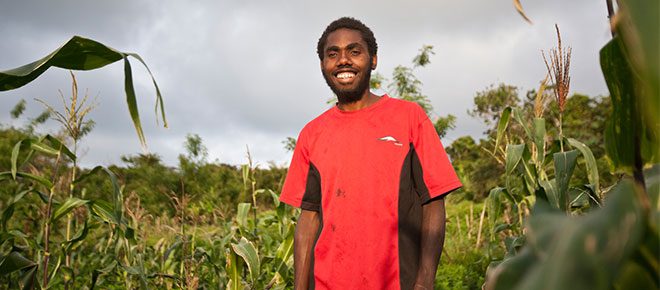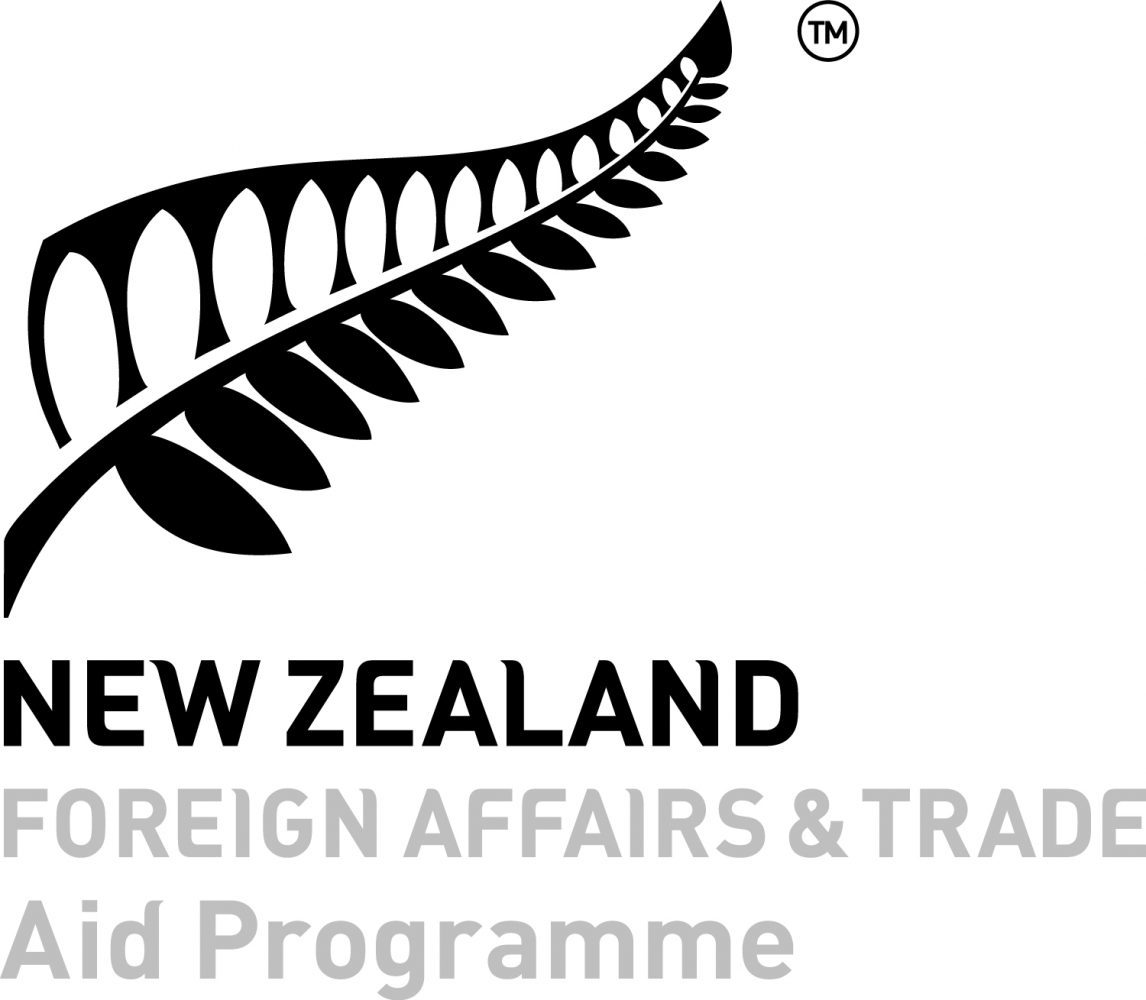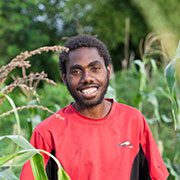With support from New Zealand Aid Programme, Oxfam is working to improve vocational training infrastructure in Vanuatu, a country where an estimated 70 per cent of young people end their formal education at primary school.

 With support from New Zealand Aid Programme, Oxfam is working to improve vocational training infrastructure in Vanuatu, a country where an estimated 70 per cent of young people end their formal education at primary school.
With support from New Zealand Aid Programme, Oxfam is working to improve vocational training infrastructure in Vanuatu, a country where an estimated 70 per cent of young people end their formal education at primary school.
Staff at Napil Rural Training Centre (RTC), on Tanna island, have been looking at new ways to build young people’s farming skills and enthusiasm while providing them with opportunities for education and training. The Napil RTC puts the focus on farming in the village — training young people through a combination of classroom lessons and practical on-farm learning.
Gender and land
During a monitoring visit, Oxfam strongly encouraged FSA and the headmaster and tutors at Napil to achieve gender parity with its student intake, and in the most recent cohort there was a significant increase in the proportion of female students, increasing from two women and 16 men to six females and five males. In addition, one of the three RTC tutors is female.
Before starting the course, trainers from Napil RTC visited the home villages of each of the 18 students and obtained the agreement of each family, together with the village chief, to sign a plot of land over to each student for their use during the three year course.
In the case of the RTC’s female students, this is a significant measure of trust and a change in attitudes on gender as women have never been formally granted land this way.
Putting skills into practice
During the course, students divide their time between the training centre in Napil and their own plot of land in the villages, spending two weeks per month in each. This allows students to use the skills they have learned at the RTC to grow their own food, but also helps to educate them about the realities of farming in their own village.
Increasing returns
 The Napil RTC also trains students on business skills, and helps them to market and sell the produce they grow on their plots of land. The proceeds are deposited in savings accounts for each student. At the end of the three-year course, the students graduate not only with the skills and knowledge to farm successfully, but also the capital to start their own enterprise.
The Napil RTC also trains students on business skills, and helps them to market and sell the produce they grow on their plots of land. The proceeds are deposited in savings accounts for each student. At the end of the three-year course, the students graduate not only with the skills and knowledge to farm successfully, but also the capital to start their own enterprise.
An 18 year old student, Michael Noklam, commented: “I have learned how to grow kava, taro and vegetables for commercial purposes. Today my village members are saying that the amount of money I have accumulated in my bank account from selling produce from my farms is unheard of. The money is too much for the usual school dropout my age.”
Long term impact
The agriculture component being run at Napil RTC forms part of Oxfam’s Pacific Livelihoods Programme. By the end of the project, RTCs, RTC students and women’s group in the target area will have increased knowledge on and be practicing innovative sustainable farming. They will have increased income and be sharing their knowledge with other farmers in their communities.
While Napil is preparing for its third batch of students, this model has been highly successful in Tutu, Fiji. A 2011 study of the Tutu Young Farmers Course for the FAO found that for 27 years, virtually all graduates from this programme return to the village to farm their own land, earn relatively high incomes and invest their savings in housing and farm development.
- Read more about Oxfam’s work in Vanuatu



